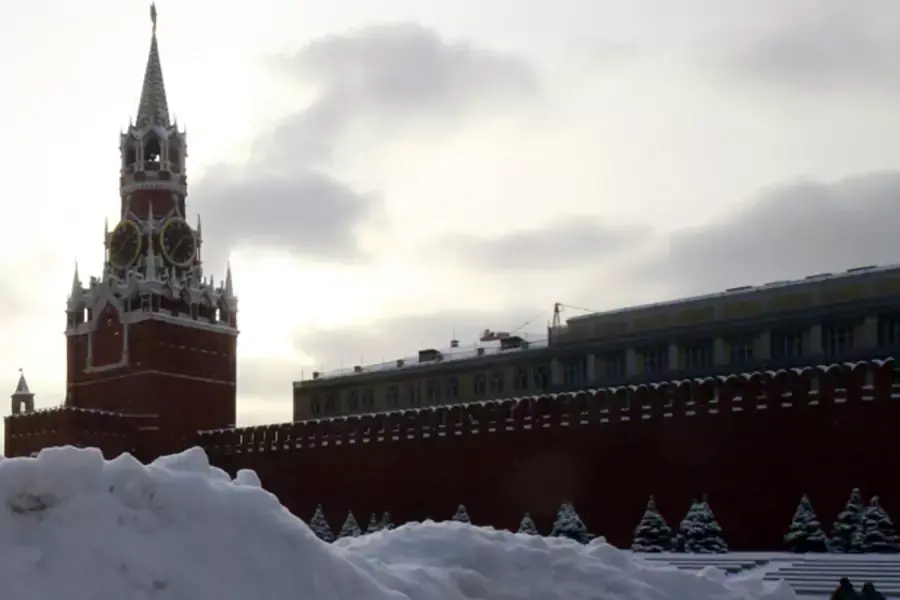Is the International Community Growing Apart?

More on:
Coauthored with Isabella Bennett, program coordinator in the International Institutions and Global Governance program.
Last month, IIGG and the Moscow-based Institute of Contemporary Development convened the second regional meeting of the Council of Councils—a network of twenty-four policy institutions based in established and emerging states—to exchange practical ideas and solutions regarding daunting transnational challenges. The conversations highlighted growing areas of systemic global risk and thinning solidarity within the so-called international community. These trends threaten to undermine multilateral cooperation in stabilizing the global economy and preserving international peace and security.
As Russia takes the helm of the G20, the forum is losing momentum. It faces questions concerning its performance, future agenda, bureaucratic structure, and international legitimacy. Several of the initial challenges the G20 sought to tackle remain unresolved. For example, the G20 missed its 2012 deadline (agreed in 2010) to reform the quota structure of the International Monetary Fund (IMF) to reflect the growing role of emerging powers in global finance. Likewise, at the 2009 Pittsburgh summit, G20 members established the Mutual Assessment Process, which would allow the IMF to analyze G20 countries’ implementation of their commitments to the “Framework for Strong, Sustainable and Balanced Growth.” But that process, too, has stalled, with leaders less motivated to enact economic reforms as recovery takes hold in many regions or, in the case of Europe, the ongoing eurozone crisis saps leaders’ legitimacy and encourages countries to turn inward.
The eurozone crisis elicited dark prognostications from meeting participants. Every few months European Union leaders gather for a summit and announce new initiatives for structural reform to resuscitate the continent’s economy. But countries repeatedly miss deadlines or fail to follow through on commitments as they wrangle over specifics. Participants predicted that turmoil in southern Europe would continue for the foreseeable future, and that the gap between European elites and the general population would continue to widen.
What makes Europe’s economic crisis socially explosive, at least potentially, is that it is merging with other troubling trends, including surging youth unemployment, aging societies, and migrant populations vulnerable to nativist backlash. These forces, more than the debt crisis itself, may pose the greatest threat to the future of the venerable “European project,” which has brought six decades of peace to a once war-ravaged continent. The eurozone crisis, participants agreed, was merely the most acute example of a broader crisis of political and institutional legitimacy in advanced market democracies confronting demographic trends, social welfare burdens, and economic competition. Moreover, its ultimate resolution would likely require global coordination and assistance beyond European nations themselves. As the rapporteur’s report explains:
The decisions made by national banks in Asia and the United States significantly affect the European economy. Ultimately, therefore, leaders will need to take decisive steps to improve procedures, formats, and structures for cross-border financial collaboration.
When it comes to collective security, the shortcomings of multilateral action have been most glaring in the inability to stop the ongoing bloodletting in Syria. The UN Security Council (UNSC) has failed to act vigorously, exposing a clash among the strategic interests of the Security Council’s five permanent members—with the United States, the United Kingdom, and France arrayed on one side, and China and Russia on the other. Notwithstanding universal endorsement of the “responsibility to protect” (R2P) principle, Russia and China have vetoed two proposed UNSC resolutions to place pressure on the regime in Damascus. They justify their stance by invoking the negative precedent of Libya, arguing that the West exploited a UNSC resolution (1973) authorizing protection of citizens there to pursue regime change. Whereas the NATO mission in Libya—supported by the UN and Arab League—had once appeared to validate R2P, the UNSC’s failure to implement it in the Syrian conflict has raised doubt about its durability and application.
More optimistically, some participants suggested that the flaccid international reaction to Syria represents an anomaly, reflecting a complex geopolitical situation rather than a total collapse of R2P. On this reading, application of R2P will always be selective: it will depend on whether any permanent UNSC members perceive a core national security interest to be at at stake in the particular country. (In this case, Russian fears about losing its only Middle Eastern ally have driven Moscow’s policy.) In other contexts, one might expect more vigorous application of R2P, including at times armed intervention to protect vulnerable populations.
The final fault line exposed at the conference related to international cybersecurity. Major powers today simply do not agree on the definition of cyber security, how to police cyber crime, whether and how the laws of war should apply to cyber attacks, and whether the governance of the internet should remain largely in private hands. Many authoritarian regimes seek state control over the flow and content of ideas and information in cyberspace, whereas Western nations vociferously support a model of Internet governance that leaves most of cyberspace in private hands and permits its users a significant degree of anonymity. Thanks to these and other differences, proposals for improved international cooperation to monitor cyber crime and advance mechanisms for law-enforcement cooperation have largely failed.
Whether the topic was financial coordination, humanitarian intervention, or cybersecurity, the Moscow meeting exposed the difficulty of forging effective multilateral cooperation in the face of divergent policy preferences and contending normative visions. One apparent lesson is that the international community is becoming more fragmented across issue areas, old and new, and that comprehensive solutions may be less relevant than piecemeal, ad hoc approaches to global governance.
More on:
 Online Store
Online Store